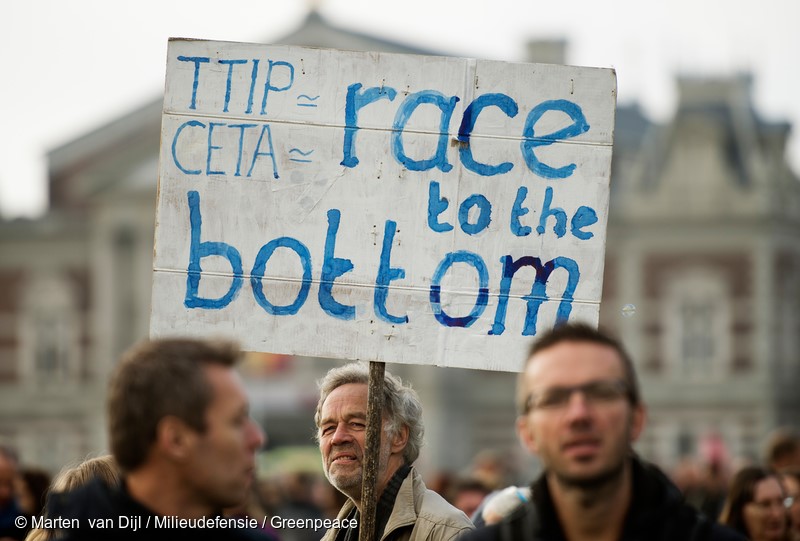Brussels – The European Parliament has rejected a resolution to refer the controversial investment protection system under an EU-Canada trade deal to the European Court of Justice (ECJ).
Greenpeace EU trade policy adviser Shira Stanton said: “Rejecting this opportunity to consult the European Court of Justice ignores the legal uncertainty surrounding CETA. If the deal is approved, European governments could be left in a catch-22 situation, with CETA rules that are likely to contradict EU law. This could seriously undermine the right of the EU and national governments to adopt policies that ensure public protection.”
A group of 89 members of the European Parliament (MEPs) across five political groups had tabled the resolution requesting the opinion of the ECJ on whether the Investment Court System (ICS) is compatible with EU treaties. Under pressure from three of its regional parliaments, the Belgian federal government has already pledged to refer the ICS to the ECJ, but the exact timing of this referral remains unclear.
CETA’s ICS arbitration panel would allow multinational corporations to sue states over laws and regulations protecting the environment, health and labour standards.
In a 2015 TTIP resolution, MEPs demanded that “the jurisdiction of courts of the EU and of the Member States is respected” in trade investment protection mechanisms. A Greenpeace analysis of the effects of CETA finds that ICS falls short of this demand.
The Parliament’s trade committee is due to vote on the CETA agreement as a whole on 5 December, before a plenary vote expected the week after.
Contact: Greenpeace EU press desk: +32 (0)2 274 1911, [email protected]
For breaking news and comment on EU affairs: www.twitter.com/GreenpeaceEU
Greenpeace is an independent global campaigning organisation that acts to change attitudes and behaviour, to protect and conserve the environment and to promote peace. Greenpeace does not accept donations from governments, the EU, businesses or political parties.

